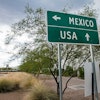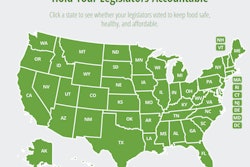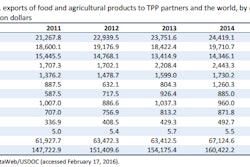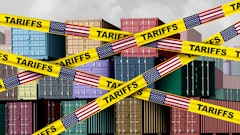
An international trade agreement embraced by President Barack Obama and the Republican-controlled Congress is drawing fire from many presidential candidates, illustrating the populist shift of both parties in the age of Donald Trump, according to The Wall Street Journal.
Contenders ranging from Democratic front-runner Hillary Clinton to Republican Sen. Ted Cruz of Texas have spoken out against the 12-nation Trans-Pacific Partnership the administration is hoping Congress will pass next year, even though both previously supported Obama’s trade policy—and could well embrace the Pacific deal in the future.
“These generally negative comments are making it hard to keep the coalition of the handful of Democrats and the majority of Republicans together to pass the TPP” next year, said Gary Hufbauer, senior trade expert at the Peterson Institute for International Economics, which backs trade liberalization. “Congress will be very attentive to who’s elected.”
To read more, click here.
Editors Insight: It would be unfortunate if presidential politics were to undermine this global trade pact, as imperfect as it might be. All parties should recognize the importance of having a global trade agreement.
Food safety problems have become more serious as a result of the globalization of the food supply chain. The global trade pact creates a mechanism that can provide safety standards for food trade.
The agreement would lower trade barriers to Pacific Rim countries, which would strengthen U.S. exports to rapidly growing economies. The agreement could potentially make food more available in Pacific Rim countries.
The Center for Food Safety and other food safety organizations have expressed opposition to the agreement because of provisions they say would allow companies to challenge safety standards they do not like. But such provisions exist under the North American Free Trade Agreement which has been in existence for two decades and has not compromised enforcement of food safety standards. 01-04-2016 By Elliot Maras


















